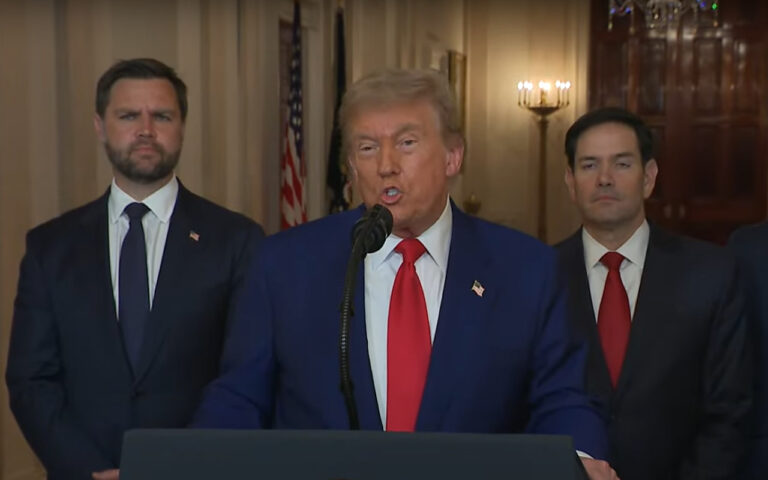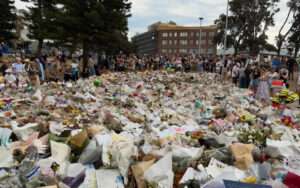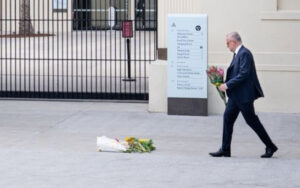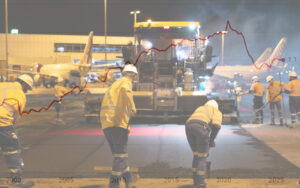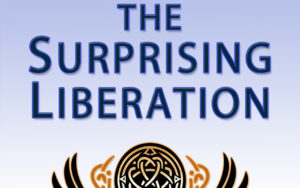The unprovoked US attack on several nuclear facilities in Iran earlier this week is a real historical turning point.
Regardless of whether the facilities were “completely and totally obliterated” (President Trump) or merely received “minor exterior damage at the entry and exit points” (Iranian state media), the geopolitical repercussions will be significant and lasting. This is the final endpoint for the neoliberal dream of the US acting as the impartial arbitrator of a rules-based global order.
The US is no longer interested in acting as the security and economic guarantor for the entire world, but has instead decided to become a “normal” country pursuing its own narrowly defined interests (or in this case the interests of America’s predominantly Jewish elite). Its rulers no longer show the slightest interest in upholding the rules it created, whether it is the post-1945 consensus about preventing genocide or the taboo against conducting military strikes against nuclear sites. For the US, everything Israel wants, Israel gets, no matter how many international laws and consensuses it breaks. The world order that we have all lived under for the past 35 years is now gone forever, and no one yet knows what will replace it.
To explain why this matters, we must look into the distinction between the US as a very powerful state among other states, and the US as guarantor of the global order.
We are not speaking in terms of a change in the military status quo, or in US hard power. The US has a hard power lead over the rest of the world that will still take many years to be equalised by its rivals. Even if it becomes relatively weaker compared to other powers, Washington will still be able to conduct operations like the one today in Iran without experiencing significant resistance.
Instead, what we are seeing is a fundamental change in the way that the Judeo-American elite conceives of America’s role in world affairs, and the way in which other states view it.
It is clear at this point that America’s Jewish-dominated ruling class sees the world purely in terms of “might makes right”. The US has enough military power to attack Iran and Russia, so it should go ahead regardless of the consequences. US allies depend on America’s hard power for their security, so they should be economically extorted and forced to cede territory that will boost that power even more.
This worldview can also be seen in Washington’s new trade policy, which seems more concerned about crippling the technological development and high-end manufacturing capabilities of China and Europe than it does with rebuilding American industry. This view of the world as a zero-sum violent struggle for supremacy seems to be deeply culturally ingrained, as it is identical to the way in which Israel’s rulers also act.
It is easy for those of the Realist school and other theorists of power politics to claim that this was always the case with US foreign policy, and that the “rules-based order” was merely an ideological cover for hegemony.
Yet this overlooks the fact that since 1945 the US has expended enormous amounts of money, military power and prestige in establishing a world system based on international institutions, (formal) equality of states and free trade. It essentially aimed to project the internal conditions of the liberal state onto the external world of statecraft.
At the centre of both manifestations of liberalism is the idea of the neutral state – a state that is constrained by laws and which acts as an impartial arbitrator of the various sections of society via parliamentary democracy.
The evidence for this is writ large across the international system as we know it, and if we don’t see this it is only because we have known nothing else in our lifetimes. As goes Congress so goes the UN General Assembly. As go the civil courts and corporate law, so goes the World Trade Organisation. As go the criminal courts, so goes the International Court of Justice. As goes the police, so go the UN peacekeepers.
Today, it is clear that the US is no longer interested in underwriting this system or in treating the laws and norms that it creates as binding on itself.
The consequences of this will be profound. Despite what America’s leaders might believe, international geopolitics is far more than a mere measurement of hard power. Legitimacy does matter, especially if a state aspires to be the global hegemon.
Military force alone cannot oblige other states to buy in to an international order. Other states must get something out of the order too, whether it involves security guarantees or economic prosperity.
There is much to criticise in the old liberal international order, whether it is mass immigration or the export of the plutocrat-driven US economic model to other countries. However, what it did offer was incentives for the US to restrain itself from abusing its hegemonic position, and for other states to integrate into the world system rather than to violently challenge it. It offered predictable rules and processes for interstate relations, greatly reducing the possibility of major wars and encouraging interdependency.
For better or worse, it created the world of “nothing ever happens”.
Now that this world has been effectively ended, states are falling back into their default behaviour when faced with a predatory great power-balancing. Alliances are formed between the potential victims of the predatory power to match the strength of their common enemy and deter further attacks.
This is already happening with the so-called “alliance of autocracies”, where US aggression has forced Russia, China, Iran and North Korea into a de facto mutual defence pact despite their widely varying interests and past rivalries.
The US bombing of Iran has ensured that its attempts to leverage Russia away from this alliance by trading it Ukrainian territory will fail completely. China has also learned the hard way through dealing with Trump’s constantly changing tariff rate and semi-conductor restrictions that trusting the Americans to abide by any agreement is extremely foolish. This is also happening with Europe, which is finally realising that its self-inflicted military weakness and ongoing US occupation have robbed it of all agency.
As we have seen this week, this is a far more unpredictable world in which great power conflict becomes a real possibility.
The transition from liberal internationalism to a multipolar world order is unlikely to be a peaceful one, with the old hegemon violently lashing out as it attempts to pull down everything it has built in a vain attempt to maintain its dominance.
History is restarting again, and we are entering a new and exciting era in which nothing is settled. Many things are going to happen that were once thought impossible, and those who cling to “nothing ever happens” are going to be in for a rude shock.
Header image credit: The White House (YouTube).
